Introduction
Vegan DHA – have you heard about it?
You’ve undoubtedly asked yourself at some point if you’re vegan or plant-based: “Do I really need DHA supplements, or is this just another health myth created by supplement companies?”
“Vegans don’t need DHA; flaxseeds and chia seeds are sufficient,” some claim.
Others caution that “your heart and brain won’t function properly without fish oil.”
This is a true misunderstanding. 😅
“I always believed a well-planned vegan diet was nutritionally complete. But when I started researching DHA, I realized that even the cleanest vegan lifestyle can still lack this one critical nutrient — and most vegans never find out until symptoms begin.”
“So today, let’s uncover the truth: Do vegans really need DHA? Is fish oil the only source? And how many myths have been stopping us from making the right health choices?”
When I first turned vegan, I thought flax seeds and chia seeds would cover all my needs. But months later, I noticed my focus slipping and energy dropping. That’s when I started looking deeper into DHA, and the myths around it.
In this blog, let’s avoid the jargon and speak in simple, everyday terms. We’ll look into:
- The definition of DHA and its significance
- Is DHA important for vegans?
- The primary myths and facts surrounding vegan DHA
- The best plant-based DHA sources
- In the end, how much is really required on a daily basis?
So, let’s grab a cup of tea and get started ☕.
You should check out health benefits of DHA in the given reference link below:
👉https://www.healthline.com/nutrition/dha-benefits
If you’re already looking for a trusted supplement, you can try DEVA Vegan Omega-3 DHA available on Amazon.in
Vegan DHA: Why It Matters for Vegans
Let’s begin with the fundamentals. Docosahexaenoic acid is referred to as DHA. It is an important component of your health and is an omega-3 fatty acid.
Nearly 60% of your brain is fat. DHA makes up a large part of this. Therefore, your brain isn’t functioning at its best if you’re low in DHA.
This is why DHA is important:
🧠 Brain health: DHA promotes mood stability, concentration, and memory.
❤️ Heart health: Aids in controlling cholesterol and blood pressure.
👀 Eye health: DHA, which is essential for clear vision, is abundant in the retina.
The problem is that most plant-based foods don’t directly provide DHA. That’s where the vegan dilemma starts.
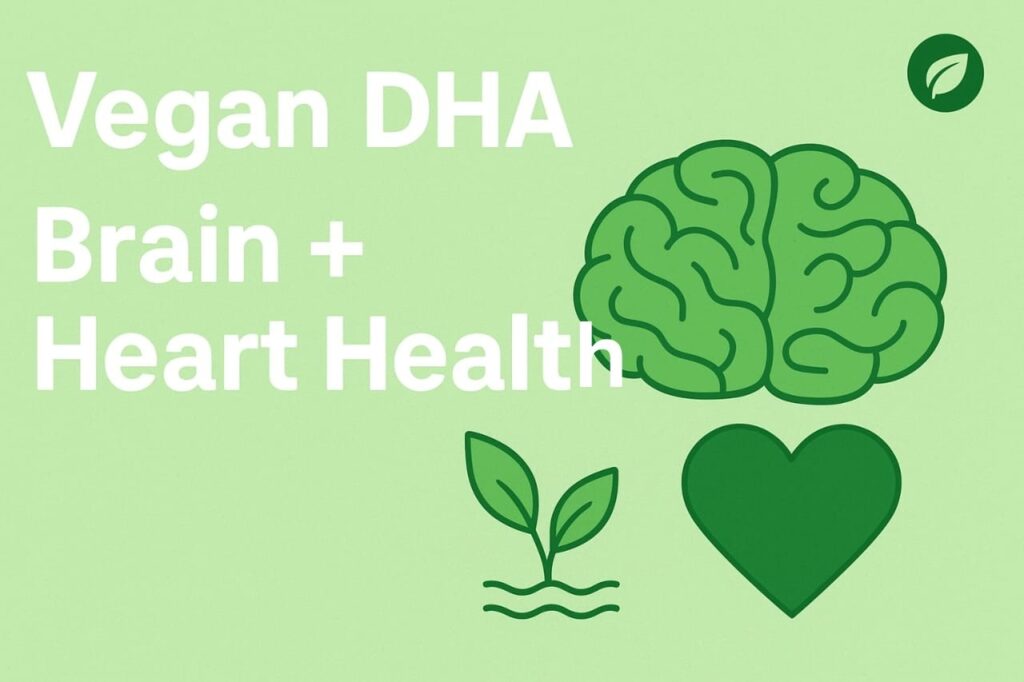
Vegan DHA Myths vs Facts
While I was researching on Vegan DHA, I came across a lot of myths about it in our society.
Myth 1: “DHA Is Found Only in Fish Oil”
Probably the most frequent thing people hear is this. “DHA? Oh, fish oil is the only source of that. Vegans aren’t getting enough.
Fact: DHA is not genuinely produced by fish. They consume algae to obtain it
Therefore, taking fish oil is essentially consuming DHA from the fish itself. Why not start with algae, the original source?
It Is precisely what vegan DHA supplements accomplish. They make use of algal oil, which is clean, sustainable, and entirely plant-based.
You should check out information about Omega-3 Fatty Acids in the given reference link below:
👉https://ods.od.nih.gov/factsheets/Omega3FattyAcids-Consumer/
Myth 2: “Vegans Get Adequate DHA from Chia and Flax”
Many vegans proudly declare, “I eat chia seeds and flaxseeds every day.” I don’t require a supplement of DHA.
Fact: ALA (Alpha-Linolenic Acid), not DHA, is abundant in hemp seeds, walnuts, chia, and flax.
The human body can convert ALA to DHA, but the conversion is minimal—around 5–10%.
Picture it like investing $100 and recovering only a small $5–10. Not very effective, is it? 😅
For this reason, depending solely on flax and chia is insufficient to achieve the ideal levels of DHA.
Myth 3: “DHA is not essential for Vegans”
“You don’t need DHA at all as long as you eat whole, natural plant foods,” some people think.
Fact: Studies reveal that vegetarians and vegans routinely have lower DHA levels than fish eaters.
Low DHA is associated with:
- Inability to concentrate and remember
- A higher chance of developing depression
- Issues with vision
- Babies may experience slower brain and eye development during pregnancy.
Therefore, the benefits of vegan DHA are real, and ignoring them may have long-term health consequences.
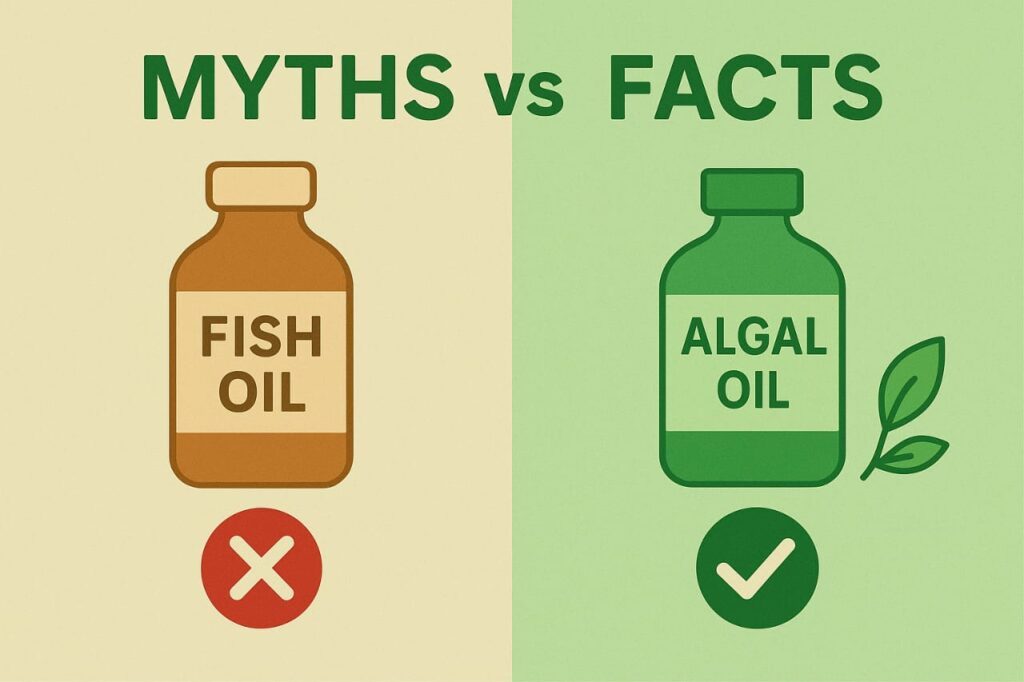
Check out this link for more detailed information:
👉https://pubmed.ncbi.nlm.nih.gov/
Vegan DHA Sources: Best Options for a Plant-Based Diet
After dispelling some myths, let’s examine the actual fixes.
- The best option for vegans is Algal Oil DHA. The purest and most trustworthy source of DHA is extracted straight from algae.
- Free of mercury
- Devoid of pollutants from the ocean
- Sustainable and entirely vegan
- Vegan DHA Supplements: Liquid algal oil supplements and capsules are now widely accessible. You can get all the DHA your body requires with just one daily dose.
- ALA sources include hemp seeds, walnuts, chia seeds, and flaxseeds—helpful but not the main suppliers.
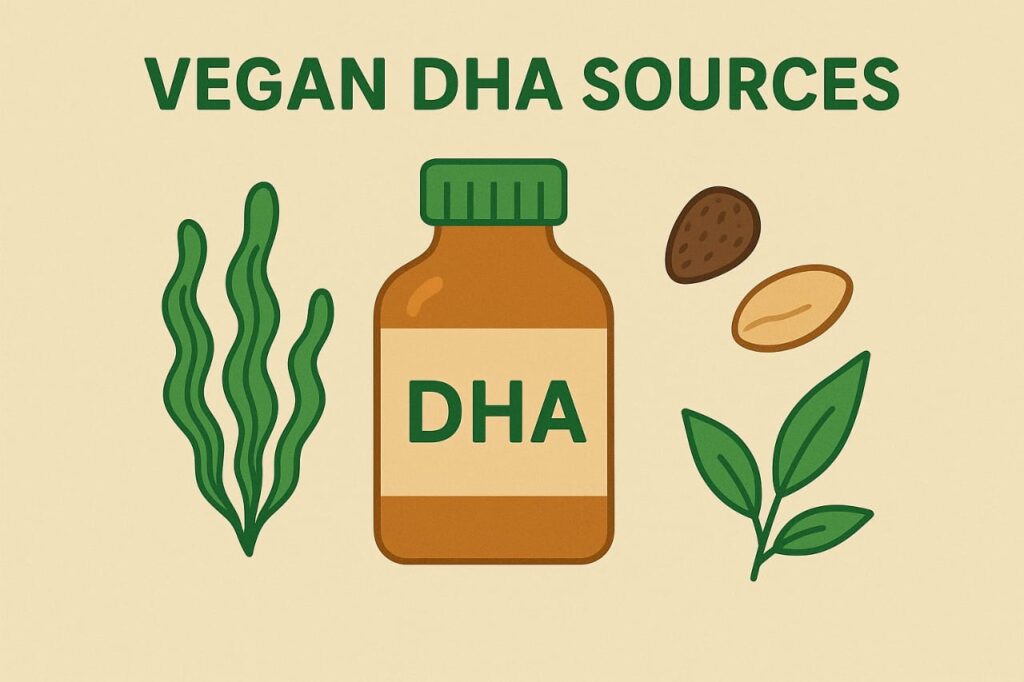
If you’re already looking for a trusted supplement, you can try NATURALTEIN Vegan Omega-3 DHA available on Amazon.in.
Vegan DHA vs Fish Oil: Which Is Better?
Okay, let’s settle the debate once and for all – fish oil or vegan DHA?
🌍 Environmental impact: Fish oil damages marine ecosystems and fuels overfishing. Vegan DHA (algal oil) is cruelty-free and environmentally beneficial.
🐟 Purity: Mercury, heavy metals, and ocean pollutants are frequently present in fish oil. Algal oil is manufactured under clean, toxin-free conditions.
🌱 Source: Keep in mind that fish do not generate DHA. Algae do. So vegan DHA is actually the original source.
👉 Conclusion: Algal oil, or plant-based DHA supplements, is superior for the environment, the oceans, and your health.
How Much Vegan DHA Do You Need Daily?
The dosage is the next practical step. In reality, how much vegan DHA is recommended?
- For adults, 200–300 mg daily is usually sufficient.
- Women who are pregnant or nursing: 300–500 mg daily (essential for the development of the baby’s brain and eyes)
- Those who are athletes or under a lot of stress: Talk to your doctor about slightly higher dosages.
- Children: Depending on age, approximately 100–200 mg per day
The easiest way? Every day, take a vegan DHA supplement. Done with one capsule
Conclusion: Vegan DHA Myths Cleared.
Let’s review:
- Algae are the true source of DHA; fish are not magical producers.
- Chia and flax are good for you, but they don’t contain enough DHA.
- Vegans do have low DHA levels, which can affect the health of their hearts, brains, and eyes.
- The ideal remedy? Algal oil-based vegan DHA is eco-friendly, safe, and clean.
Consider this: by selecting algae oil DHA rather than fish oil, you’re doing more than just safeguarding your own heart and brain. You’re also contributing to the health of the oceans and saving countless fish. 🌊🐟❤️
👉 So, are you ready to choose compassion? For the sake of the environment and your health, choose plant-based DHA.
In my opinion, Algal Oil is more ethical than Fish Oil.
If you’re already looking for a trusted supplement, you can try RASAYANAM Vegan Omega-3 DHA available on Amazon.in.
FAQs
- Are DHA supplements necessary for vegans?
👉 Indeed. Vegans are more likely to have a DHA deficiency because plant foods don’t directly provide it. When it comes to vegan DHA, algae oil is the best option.
- Which vegan DHA source is the best?
👉 Coming directly from algae, Algal oil remains clean and free of mercury.
- Is fish oil inferior to algae oil?
👉 Indeed. The original source of DHA is algae oil, which doesn’t harm the environment or contain mercury or toxins like fish oil does.
- What is the recommended daily intake of vegan DHA?
👉 The average adult requires 200–300 mg daily. During pregnancy, the requirement can increase to 300–500 mg. Typically, children require 100–200 mg.
Get more information about Vegan DHA from our other blogs. Blog
Disclaimer: This post contains affiliate links. If you buy through these links, I may earn a small commission at no extra cost to you. It helps me keep sharing useful content with you.
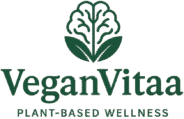
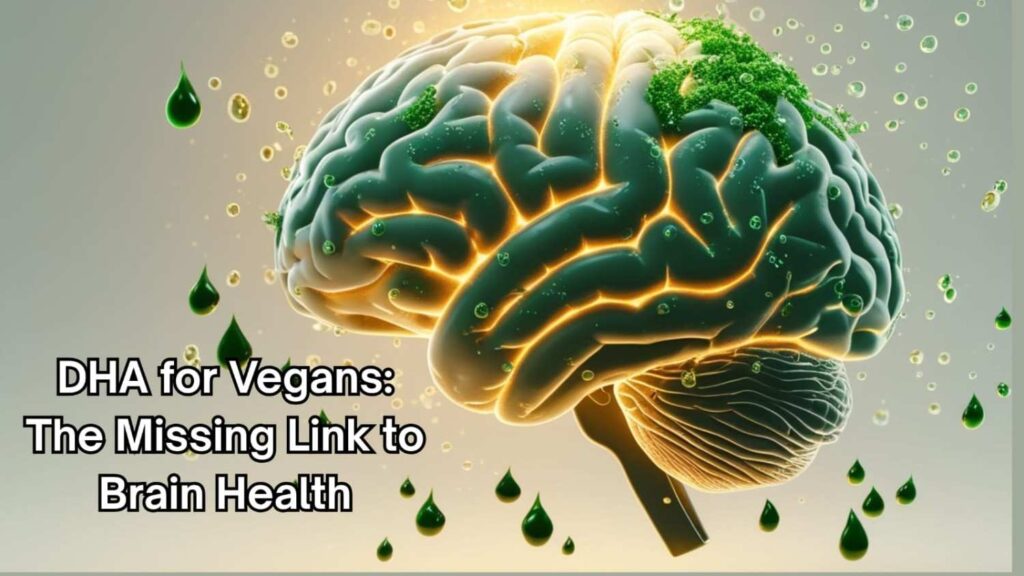
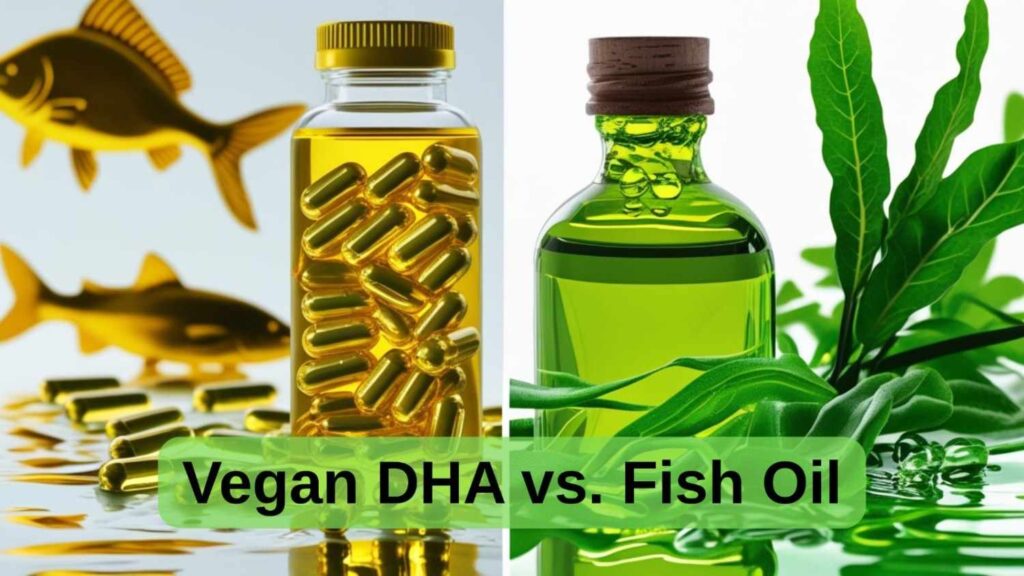
Pingback: Vegan Omega 3 for Athletes: Stamina, Recovery & Performance
Pingback: Vegan Vitamin B12 Deficiency- Symptoms & Best Sources